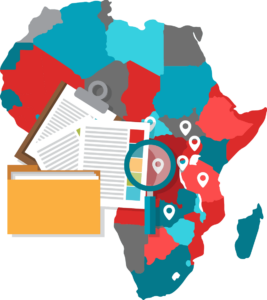 Section 1502 of the Dodd-Frank Wall Street Reform & Consumer Protection Act requires public companies in the U.S. to disclose their use of tin, tungsten, tantalum and gold (3TGs) in their products and determine if they are sourced in an ethical manner. It was passed by the Obama administration in 2010 to prevent armed groups in the Democratic Republic of the Congo (DRC) and surrounding regions from benefiting from the sale of these minerals.
Section 1502 of the Dodd-Frank Wall Street Reform & Consumer Protection Act requires public companies in the U.S. to disclose their use of tin, tungsten, tantalum and gold (3TGs) in their products and determine if they are sourced in an ethical manner. It was passed by the Obama administration in 2010 to prevent armed groups in the Democratic Republic of the Congo (DRC) and surrounding regions from benefiting from the sale of these minerals.
Section 1502 Requirements

In scope companies must perform due diligence to determine if 3TGs were sourced from the DRC and adjoining countries. Companies must identify whether conflict minerals are present within their products and submit a report to the U.S. Securities and Exchange Commission. These reports are public disclosures and must be made available on the websites of U.S. publicly-traded companies.
The regulation has a flow-down effect to suppliers, who are responsible for upholding the indirect requirements to comply with Section 1502 of the Dodd-Frank Act.
How Do Companies Demonstrate Compliance?

Companies must demonstrate due diligence, which may follow the recognized OECD Due Diligence Guidance on Responsible Supply Chains of Minerals from Conflict-Affected and High-Risk Areas. The most commonly used tool to transfer conflict mineral information through the supply chain is the Conflict Minerals Reporting Template. It was developed by the Responsible Minerals Initiative as an industry standard template, and has been widely adopted by in-scope companies.
Assent’s Conflict Mineral Module Highlights:
- Automated data validation and supplier submission receipts
- Focused sendouts to specific supplier subsets
- The ability to track emails sent to suppliers, emails with no response and bounced emails
- Access up-to-date smelter information in line with RMI updates
- Collects and centralizes CMRTs
- Automatically adapts to changing global conflict mineral regulations
- Real-time reporting







